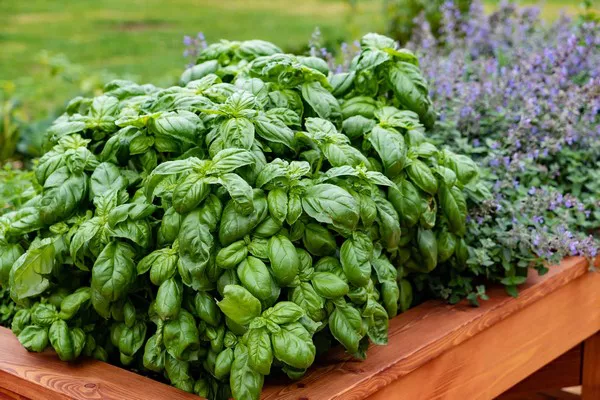Growing chilli plants can be a rewarding experience for gardeners, offering not just culinary delights but also a sense of accomplishment. However, frustration can set in when those vibrant flowers fail to yield the desired fruit. This phenomenon, where chilli plants produce flowers but no fruit, is a common occurrence and can be attributed to various factors. In this comprehensive guide, we delve into the intricacies of chilli plant cultivation, exploring the physiological and environmental factors that influence fruit set. By understanding these dynamics, gardeners can troubleshoot issues and optimize conditions to encourage fruitful outcomes.
The Phenomenon of Flower Drop
One of the most perplexing situations for chilli growers is the phenomenon known as flower drop. This occurs when flowers, instead of developing into fruits, wither and fall off the plant prematurely. Several factors contribute to flower drop in chilli plants, including environmental stressors, inadequate pollination, nutrient deficiencies, and hormonal imbalances.
Environmental Stressors: A Barrier to Fruit Set
Environmental stressors play a significant role in inhibiting fruit set in chilli plants. High temperatures, for instance, can cause flower abortion, as excessively hot conditions disrupt the pollination process and impair pollen viability. Conversely, chilli plants exposed to low temperatures may also experience flower drop, particularly if temperatures fall below 55°F (13°C), inhibiting pollen germination and fertilization.
Inconsistent watering practices can also induce stress in chilli plants, leading to flower drop. Periods of drought followed by excessive watering can disrupt nutrient uptake and hormone balance, adversely affecting flower development and fruit set. It is essential to maintain consistent moisture levels in the soil, ensuring that chilli plants receive adequate hydration without becoming waterlogged.
Pollination Woes: Overcoming Reproductive Hurdles
Successful pollination is crucial for fruit set in chilli plants, and any disruption to this process can hinder yield. While chilli flowers are self-pollinating, they may still require assistance from pollinators such as bees, butterflies, and other insects to transfer pollen effectively. Factors such as limited insect activity, poor flower structure, or environmental conditions that impede pollen transfer can contribute to inadequate pollination and subsequent flower drop.
To mitigate pollination woes, gardeners can employ various strategies to enhance pollinator activity and improve pollen transfer. Introducing pollinator-friendly plants nearby, providing nesting sites for solitary bees, and gently shaking chilli plants to facilitate pollen release are effective techniques to boost pollination and increase fruit set.
Nutrient Deficiencies: Balancing the Nutritional Equation
Nutrient deficiencies can significantly impact the reproductive health of chilli plants, impairing flower development and fruit set. Common deficiencies, such as nitrogen, phosphorus, potassium, calcium, and magnesium, can manifest in chlorotic leaves, stunted growth, and poor flower formation.
Nitrogen deficiency, in particular, can hinder fruit set in chilli plants, as nitrogen is vital for chlorophyll production and overall plant vigor. Insufficient nitrogen levels can result in sparse foliage, weak stems, and reduced flower formation, ultimately leading to poor fruit development. To address nitrogen deficiency, gardeners can incorporate nitrogen-rich fertilizers or organic amendments into the soil and implement regular fertilization practices to sustain optimal nutrient levels throughout the growing season.
Hormonal Imbalances: Regulating Reproductive Physiology
Hormonal imbalances can disrupt the delicate interplay of physiological processes governing flower development and fruit set in chilli plants. Ethylene, a plant hormone involved in fruit ripening and abscission, plays a pivotal role in modulating flower retention and fruit development. Excessive ethylene levels, often triggered by stressors such as high temperatures, drought, or mechanical injury, can accelerate flower drop and impede fruit maturation.
Auxins, another group of plant hormones, also influence reproductive physiology in chilli plants, regulating flower initiation, development, and abscission. Imbalances in auxin levels, stemming from genetic factors, environmental stressors, or cultural practices, can disrupt flower formation and reduce fruit set. By optimizing growing conditions, maintaining proper nutrition, and minimizing stressors, gardeners can promote hormonal equilibrium and enhance fruit development in chilli plants.
See Also: Why Does My Dragon Fruit Flower but Yield No Fruit?
Cultural Practices: Nurturing Healthy Plants
Effective cultivation practices are essential for nurturing healthy chilli plants and maximizing fruit production. Proper spacing, adequate sunlight, and optimal temperature and humidity levels are critical factors that influence plant growth, flowering, and fruit set. Providing adequate support for chilli plants, such as trellising or staking, can prevent stem breakage and enhance air circulation, reducing the risk of disease and stress-induced flower drop.
Regular pruning and maintenance also play a vital role in promoting fruit set and overall plant health. Removing diseased or damaged foliage, as well as excessive vegetative growth, encourages energy allocation towards flower and fruit production, ensuring optimal yields. Additionally, mulching around chilli plants helps conserve soil moisture, suppress weed growth, and maintain consistent soil temperatures, creating an ideal environment for robust growth and fruit development.
Conclusion
In conclusion, the enigma of chilli plants flowering but failing to set fruit can be attributed to a myriad of factors, including environmental stressors, pollination woes, nutrient deficiencies, hormonal imbalances, and cultural practices. By understanding the complexities of chilli plant physiology and addressing underlying issues, gardeners can overcome obstacles and optimize growing conditions to promote successful fruit set and abundant harvests.
Through careful observation, proactive management, and a holistic approach to plant care, gardeners can navigate the path to fruitful outcomes, enjoying the bountiful rewards of their labor. By cultivating resilience, patience, and a deep appreciation for the intricacies of nature, chilli enthusiasts can embark on a journey of growth and discovery, savoring the joys of homegrown bounty and the timeless allure of the garden.


